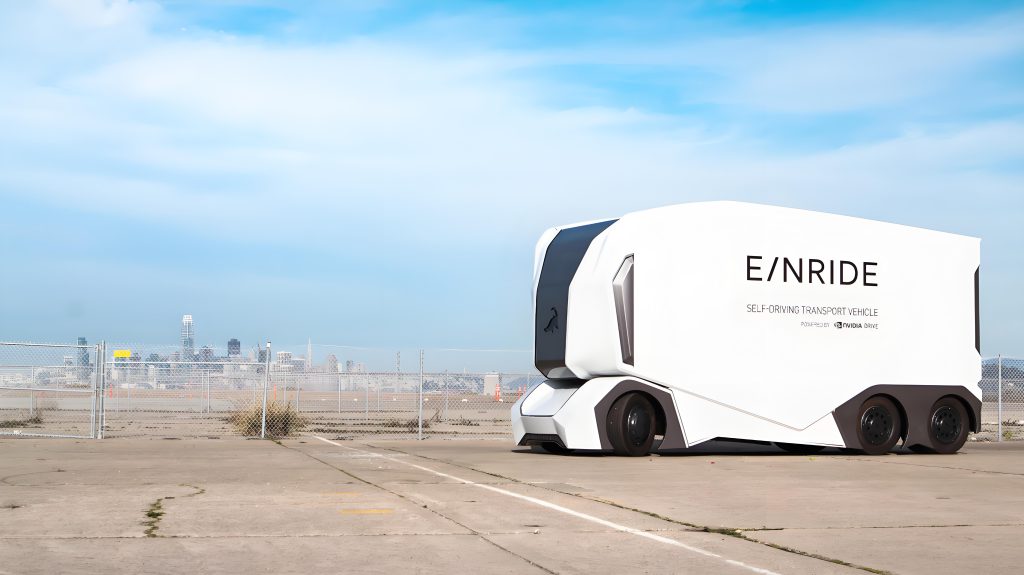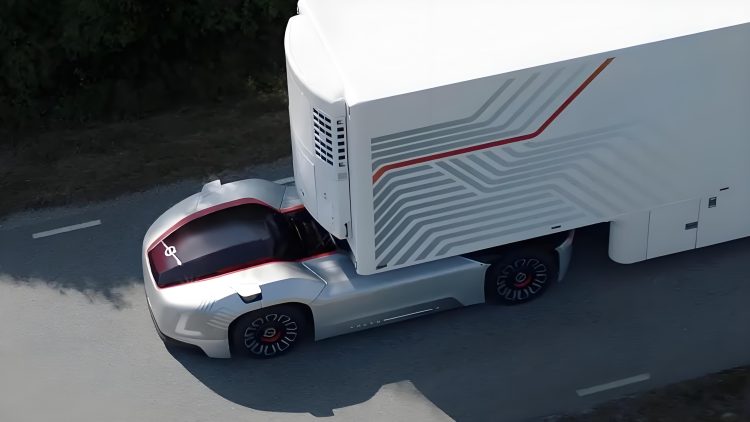In the ever-evolving landscape of transportation and logistics, a new revolution is brewing on the horizon—the advent of autonomous trucks, reshaping the way goods move across the globe. These technological marvels represent a leap forward in efficiency, safety, and sustainability, promising to revolutionize the entire supply chain industry.

The Dawn of a New Era
Autonomous trucks, or self-driving cargo vehicles, are poised to transform the way we think about logistics. Equipped with cutting-edge sensor technology, advanced AI algorithms, and sophisticated computing systems, these vehicles are capable of navigating complex road networks, negotiating traffic, and even making last-mile deliveries with minimal human intervention.
Gone are the days of driver fatigue, long hours on the road, and potential accidents caused by human error. Autonomous trucks offer a safer, more reliable alternative, ensuring that goods arrive on time and in perfect condition, every time.
Efficiency Redefined
One of the most compelling aspects of autonomous trucks is their ability to significantly enhance operational efficiency. By eliminating the need for drivers to rest or take breaks, these vehicles can operate continuously, maximizing their cargo capacity and reducing downtime. This not only leads to faster delivery times but also helps businesses save on labor costs and increase profitability.
Furthermore, autonomous trucks can optimize their routes in real-time, using advanced mapping and navigation systems to bypass traffic jams and find the quickest, most efficient paths. This level of flexibility and adaptability is unmatched by traditional trucking methods, making autonomous trucks the ultimate tool for modern logistics.
Safety First
Safety is paramount in the transportation industry, and autonomous trucks deliver on this front with remarkable precision. Equipped with a suite of sensors, including cameras, radar, LiDAR, and ultrasonic sensors, these vehicles can detect and react to potential hazards in milliseconds, far faster than any human driver.
By eliminating the risk of driver fatigue and distraction, autonomous trucks significantly reduce the likelihood of accidents, making our roads safer for everyone. Moreover, their ability to communicate with other vehicles and infrastructure through V2X (Vehicle-to-Everything) technology further enhances safety, allowing for seamless coordination and cooperation on the road.
Sustainability in Motion
As the world becomes increasingly conscious of its environmental footprint, autonomous trucks offer a sustainable solution to transportation challenges. By optimizing routes and reducing idle time, these vehicles consume less fuel, leading to lower emissions and a reduced carbon footprint.
Moreover, the adoption of electric autonomous trucks could further accelerate the transition to renewable energy, as these vehicles run on clean, emission-free power sources. This not only benefits the environment but also supports the growth of green industries and promotes a more sustainable future.
Embracing the Future
The rise of autonomous trucks marks a new chapter in the history of logistics. As these vehicles become more prevalent on our roads, they will redefine the way we think about transportation, efficiency, safety, and sustainability.
Businesses that embrace this technology will be well-positioned to capitalize on its benefits, reducing costs, improving delivery times, and enhancing their competitive advantage. And as we continue to navigate the complexities of modern logistics, autonomous trucks will be our most valuable allies, guiding us towards a brighter, more connected future.











































Discussion about this post